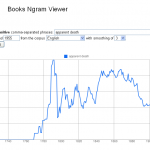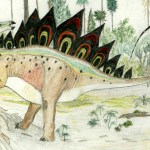Social Sciences
Historiography is meta-history, that is, the historical study of historical studies in the past. It is useful and valuable to historical research as ongoing quality control and provides a kind of user's manuals for those who wish to use old literature in new studies of the past. Also, it can often help explain political ideas, movements and propaganda in the past, as that field in society often attempts to use and manipulate history. I am, however, of the firm opinion that if you are interested in, say, the High Middle Ages, you have no reason to delve into Victorian ideas about that period.…
As hard as it is to believe after the pile of poo that was 2010, the year 2011 is starting out rather promisingly, at least from the point of view of science-based medicine. Its beginning has been greeted with the release of two--count 'em, two!--books taking a skeptical, science-based look at vaccines and, in particular, the anti-vaccine movement.
First off the mark (for me, at least) is a new book by a man whom the anti-vaccine movement views as the Dark Lord of Vaccination, Sauron himself sitting up in Barad-dûr (apparently the University of Pennsylvania and Children's Hospital of…
Almost Diamonds has two interesting posts on the Julian Assange sexual assault/rape accusation/charges. I want to make a comment on part of the second post, but this may not make a lot of sense to you until you read both of them. They are concise and compelling so you will not regret the time you spend on them:
Assange and the Presumption of Innocence
Assange and the Victim Conspiracy
The issue is that of jealousy or resentment. Some Assange defenders, for some reason, seem to feel the need to point out suspicious or negative aspects of the women, their actions, reactions, decisions, etc…
I'm sure Google Ngrams needs no introduction, but in case I'm wrong: it's a nifty (if crude and much-misused) tool for investigating the frequency of written terms in Google's vast databank of digitised books - some trillion or so words.
As I was editing my forthcoming zombies book, I fiddled about with Google NGrams to visualise the emergence of certain technologies (such as the sharp rise and fall of galvanism).
One of the central questions in my book is the notion of death, and how it is better understood as a process than a state - i.e. whether you are 'dead' or not depends largely on…
Next stop: Iowa. The Iowa Physiological Society, a local chapter of The American Physiological Society, held their 15th annual meeting on Saturday October 9th at Des Moines University.
Here are some of the comparative physiology highlights from their annual meeting:
The Lizard "Kiss and Run": The main method of neurotransmitter release is usually thought to occur by exocytosis where a vesicle, which holds the neurotransmitters, fuses with the plasma membrane of a cell and releases its contents into the fluid outside of the cell. Some vesicles, however, have been described as only…
slacktivist: Excruciating
"The work of a senator doesn't have to be so painful. If you find yourself complaining because you're being forced to defend indefensible positions by voting on them, it might be that the problem doesn't lie with those forcing you to cast a vote and take a stand. It seems more likely that the problem lies with where you have chosen to stand and why you have chosen to stand there."
(tags: politics society blogs slacktivist us class-war race gender culture)
Anna Griffin: Let's all adopt the attitude: No whining on the yacht | OregonLive.com
"In the name of full…
Among the most iconic and remarkable of dinosaurs are the stegosaurs, a mostly Jurassic group of thyreophorans famous for the rows of spikes and plates that decorated their necks, backs and tails [somewhat inaccurate Stegosaurus stenops shown below. I did it many years ago].
As I'm fond of saying, the stegosaur we know best - Stegosaurus - is an atypical member of the group. It's particularly large and possesses lots of plates and but a few spikes. Stegosaurus may also be unusual in lacking shoulder spikes (aka parascapular spines), but this is less clear that it used to be since the '…
The next stop on our journey visiting local chapters of The American Physiological Society is Nebraska. The Nebraska Physiological Society was founded in 1997 and just held their 13th meeting on September 11, 2010 in Omaha. If I only lived in Nebraska I would have been able to listen to Dr. Hannah Carey from the University of Wisconsin speak about hibernation! Dr. Carey is a well-known comparative physiologist who specializes in gastrointestinal physiology and hibernating animals. What a great start to a meeting!
Here are some other highlights from the 13th annual meeting of the Nebraska…
We are living in the most destructive and, hence, the most stupid period of the history of our species. The list of its undeniable abominations is long and hardly bearable. And these abominations are not balanced or compensated or atoned for by the list, endlessly reiterated, of our scientific achievements. Some people are moved, now and again, to deplore one abomination or another. Others - and Hayden Carruth is one - deplore the whole list and its causes. Much protest is naive; it expects quick, visible improvement and despairs and gives up when such improvement does not come.…
Attention conservation notice: A couple thousand words that can be summarized as: "Someone is wrong on the internet."
Jerry Coyne has a longish reply to my post yesterday. He seems quite upset about it. He seems to think I'm very, very wrong. And yet he cannot manage to characterize my argument correctly, and offers nothing at all that would refute my argument (or even refute his mischaracterization of that argument). It's odd. He's basically conceding that I'm right that no evidence was offered, and he knows of no evidence. He seems upset that I bothered to point out that lack of…
It's my birthday today, but instead of buying me presents, how about helping ProMED, a non-profit organization that provides important disease and health information to over 155 countries? Here's some more information about what ProMED does:
ProMED-mail - the Program for Monitoring Emerging Diseases - is an Internet-based reporting system dedicated to rapid global dissemination of information on outbreaks of infectious diseases and acute exposures to toxins that affect human health, including those in animals and in plants grown for food or animal feed. Electronic communications enable…
I'll be in and out of internet contact for the next few days, so I may or may not respond to any new wingnuttery from Michael Egnor. But it's worth making a few broad points.
First, nothing I've written should be taken to suggest that fetuses (especially in the third trimester) don't have moral status as people. My previous posts in this vein have been dedicated to showing that Egnor's criteria for making that judgment from the moment of conception are flawed and lead to pernicious and absurd results. I think I've succeeded there.
Second, in discussing abortion, I don't think the really…
Shortly after Michael Egnor launched his first defense of creationism at the Disco. 'Tute's blog, the wags at Panda's Thumb coined the term "egnorance," to describe "the egotistical combination of ignorance and arrogance." It was funny, and remains so years later, because it's true.
Which brings us to Egnor's reply to me, about the morality of abortion, etc.. His first basic error lies in the opening words of his title: "NCSE's Program Director Josh Rosenau: Human Dependency Obviates the Right to Life." It's true that I work at NCSE, but this blog is not an NCSE product, there's a clear…
To their credit The Australian has published an article by David McKnight:
On climate issues The Australian still gives voice to a global PR campaign largely originated by the oil and coal companies of the US. On this score genuinely sceptical journalism is missing in action. Instead, an ideological sympathy with climate sceptics has been concealed behind a fig leaf of supposed balance.
But what shines through in the attitude of the newspaper is its lack of intellectual and moral seriousness in dealing with the consequences of climate change.
To their discredit they simultaneously published…
A new species of stork has been identified from Flores, which is the Indonesian island on which the famous "hobbit" fossils have been found. The "hobbit" is a form of hominid (human relative) that seems to be a diminutive form of Homo erectus but different enough from that widespread species to give it a distinct taxonomic status, Homo floresiensis. The Flores hominids were probably about 120 centimeters in height, and the new stork was probably about 180 centimeters in height. The following artist reconstruction is meant to demonstrate bigness of the stork in relation to our diminutive…
Yesterday I had been invited to speak at a seminar organised by the Forum for Heritage Research, a network sponsored by four Swedish organisations in the field. The headline was "Hope for the Humanities", and I must admit that I gritted my teeth at the idealist, anti-market and downright unrealistic perspective presented in the invitation copy. Here's a piece based on what I said at the seminar.
I'm very interested in the humanities, particularly archaeology, which is my profession. But I have no interest in TV game shows, even though I know that they're extremely popular. Why is that?
A…
As Urbanization Week continues, Liz Borkowski put up a great post about feeding cities that includes a nice, rational (look at the comments for more good stuff) discussion of the idea of Vertical Farming. I'm glad to see the issue come up, because it has so much power. I'm grateful to Liz for providing such a balanced and rational discussion, since most of them aren't.
I don't think I'm even overstating when I say that every time I go somewhere and talk about food, someone asks me what I think of the idea of Vertical Farming. It is the cool, trendy idea about feeding cities that gets tons…
Interesting...
More recent research has revealed that chimpanzees and even dogs can catch yawns from those around them, including from humans, but little is known about why we yawn and why it appears to be so infectious.
Psychologists at the University of Stirling, however, have now discovered that infants and young children are not prone to the contagious aspect of yawning. Instead, they only ever yawn spontaneously.
Dr Jim Anderson, a reader in psychology at the University of Stirling who led the research, which is published in the Royal Society journal Biological Letters, believes the…
Liz Borkowski of The Pump Handle and I are doing a series this week on the future of urbanization. Given that just about half the world's population now lives in cities, and that almost all projected demographic growth (we will come back to whether the UN's projections on this subject are realistic in a post later this week) will occur in cities, the realities - and future - of urban life are important discussions.
Like Liz, I love cities. That may seem strange to people who know that I live out in a rural area, since many rural-dwellers don't enjoy the bustle and noise of urban life, but…
Chris Mitchell, defending against the charge that The Australian's coverage of climate change is biased, said:
What people do not like is that I publish people such as Bjorn Lomborg. I will continue to do so, but would suggest my environment writer, Graham Lloyd, who is a passionate environmentalist, gets a very good run in the paper."
Does Lloyd's reporting provide a counterpoint to Lomborg in The Australian? He's only just become the environment writer, so there aren't many stories to go on, but on those his record is similar to that of a predecessor, Matthew Warren.
For example Graham…



